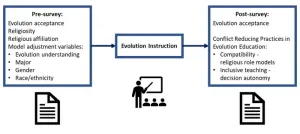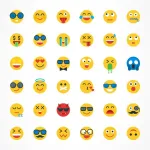(Press-News.org) People who are credulous are less capable of recognizing fake news, and along with mistrustful adults, are more susceptible to conspiracy thinking and vaccine hesitancy, according to a study published December 4, 2024, in the open-access journal PLOS Global Public Health by Michal Tanzer and colleagues from University College London, U.K.
Epistemic trust is the readiness to regard knowledge communicated by others as significant, self-relevant, and generalizable to other contexts. Disruption to the capacity for epistemic trust may undermine healthy functioning that requires rapid, efficient checking and updating of social knowledge and underlie psychological disorders. Campbell and colleagues set out to investigate how the vulnerability engendered by disruptions in epistemic trust may not only impact psychological resilience and interpersonal processes but also aspects of more general social functioning.
Specifically, the researchers conducted two studies to examine the role of epistemic trust in determining the capacity to recognize fake versus real news, and susceptibility to conspiracy thinking. They measured two different types of epistemic disruption: mistrust, which involves the tendency to reject or avoid any communication, and credulity, in which information is received with insufficient discrimination, leaving the recipient vulnerable to misinformation or exploitation.
A total of 705 and 502 adults living in the U.K. participated in the two studies, respectively, and completed online questionnaires. The results revealed that individuals with high credulity were poorer at discriminating between fake and real news, and more likely to perceive fake news as real and affirm false news in relation to COVID-19. In addition, mistrust and credulity were factors responsible for driving the relationship between exposure to childhood adversity and difficulty in distinguishing between fake and real news, although the effect sizes were small.
The findings also showed that mistrust and credulity were associated with conspiracy beliefs, both in general and in relation to COVID-19, as well as vaccine hesitancy. Although the authors caution that it was not possible to determine causal relationships, the results suggest that effective public health interventions may need to directly tackle and attempt to reverse mistrust and credulity. Future studies are also necessary to explore whether the findings generalize to people who live in other countries.
The authors add: “The study sought to explore social-cognitive processes associated with two of the most urgent issues of global public health in the contemporary digital era: the alarming spread of fake news and the breakdown of collective trust in sources of information. Our research seeks to explore possible psychological mechanisms at work in shaping individuals’ responses to public information.”
#####
In your coverage please use this URL to provide access to the freely available article in PLOS Global Public Health: https://journals.plos.org/globalpublichealth/article?id=10.1371/journal.pgph.0003941
Citation: Tanzer M, Campbell C, Saunders R, Booker T, Luyten P, Fonagy P (2024) The role of epistemic trust and epistemic disruption in vaccine hesitancy, conspiracy thinking and the capacity to identify fake news. PLOS Glob Public Health 4(12): e0003941. https://doi.org/10.1371/journal.pgph.0003941
Author Countries: Belgium, United Kingdom
Funding: This research was supported by a grant from the British Academy as part of the BA/Leverhulme Small Research Grants (SRG1920\101398) to CC, MT and PF. PF is in part supported by the NIHR Applied Research Collaboration (ARC) North Thames at Barts Health NHS Trust. The views expressed are those of the author(s) and not necessarily those of the NIHR or the Department of Health and Social Care. The funders had no role in study design, data collection and analysis, decision to publish, or preparation of the manuscript.
END
Why some individuals believe fake news and conspiracies
Mistrust is associated with conspiracy thinking and vaccine hesitancy
2024-12-04
ELSE PRESS RELEASES FROM THIS DATE:
Misokinesia, intolerance of others' fidgeting and repetitive body movements, can cause people to experience intense reactions, negative emotions and relationship strain, per qualitative study
2024-12-04
Misokinesia, intolerance of others' fidgeting and repetitive body movements, can cause people to experience intense reactions, negative emotions and relationship strain, per qualitative study
###
Article URL: https://journals.plos.org/plosone/article?id=10.1371/journal.pone.0313169
Article Title: I struggle with your fidgeting: A qualitative study of the personal and social impacts of misokinesia
Author Countries: Canada, U.S.
Funding: We received funding from Natural Sciences and Engineering Research Council of Canada (NSERC) for our study. The funders had no role in study design, data collection and analysis, decision to publish, or preparation of the manuscript. END ...
Not red in tooth and claw: Teaching evolution with conflict reduction practices increases acceptance
2024-12-04
Students in biology classes accepted the theory of evolution more often when it was taught with conflict-reducing practices, including an emphasis on religious compatibility and autonomy, according to a study published December 4, 2024 in the open-access journal PLOS ONE by Rahmi Ourota Aini and Elizabeth Barnes from Middle Tennessee State University, U.S., and colleagues.
Evolution is of the foundation of biology, but currently half of the United States population rejects the idea of human evolution. One of the most important factors in the acceptance of evolution ...
Emoji use may depend on emotional intelligence and attachment style
2024-12-04
Higher emotional intelligence is linked to more emoji use with friends, while avoidant attachment is associated with less emoji use with friends and dating or romantic partners, according to a study published December 4, 2024, in the open-access journal PLOS ONE by Dr. Simon Dubé, Research Fellow at The Kinsey Institute, Indiana University, U.S., and colleagues. This pattern of results varies across genders and relationship types, with women using emojis with friends and family more frequently than men.
Emojis are characters depicting emotions, objects, animals, and more. They can be sent ...
Study reveals mammoth as key food source for ancient Americans
2024-12-04
Scientists have uncovered the first direct evidence that ancient Americans relied primarily on mammoth and other large animals for food. Their research sheds new light on both the rapid expansion of humans throughout the Americas and the extinction of large ice age mammals.
The study, featured on the Dec. 4 cover of the journal Science Advances, used stable isotope analysis to model the diet of the mother of an infant discovered at a 13,000-year-old Clovis burial site in Montana. Before this study, prehistoric diet was inferred by ...
Male African elephants develop distinct personality traits as they age
2024-12-04
Male African elephants have distinct personality traits, but also adapt their behavior to suit the social context, according to a study publishing December 4, 2024, in the open-access journal PLOS ONE by Caitlin O’Connell-Rodwell at Stanford University and Harvard University Center for the Environment, Jodie L. Berezin of Utopia Scientific, U.S., and colleagues.
Many animals show consistent individual differences in behavior, sometimes described as ‘personality’ or ‘temperament’. Elephants are highly intelligent and have rich social lives, and previous research has shown that captive ...
Mass General Brigham research leads to new insights on preventing brain injury after cardiac arrest
2024-12-04
KEY TAKEAWAYS
A team led by researchers at Mass General Brigham built the first immunology-focused biobank with samples from patients who experienced out-of-hospital cardiac arrest.
Samples from the biobank provided a unique window into the immunological changes that take place after cardiac arrest.
Researchers uncovered a population of cells that may provide protection from brain injury following cardiac arrest, leading them to examine a drug that can activate these cells to improve neurological outcomes.
Despite ...
Study exposes link between genetic risk of depression and heart disease in women
2024-12-04
Women who have a high genetic risk of depression are more likely to develop heart disease, University of Queensland researchers have found.
During a study that analysed genetic and health data from more than 300,000 people, Dr Sonia Shah and Dr Clara Jiang from UQ’s Institute for Molecular Bioscience found women who had a high genetic risk of developing depression also had a high risk of developing heart disease, even in the absence of a depression diagnosis.
Dr Shah said these results exposed a difference in the risk for women compared ...
How breast cancer cells survive in bone marrow after remission
2024-12-04
A study from researchers at the University of Michigan and the University of California San Diego has shed light on a previously poorly understood aspect of breast cancer recurrence: how cancer cells survive in bone marrow despite targeted therapies.
The paper, “Breast cancers that disseminate to bone marrow acquire aggressive phenotypes through CX43-related tumor-stroma tunnels,” appears in the Journal of Clinical Investigation.
Estrogen receptor positive breast cancer is the most ...
Closing underperforming hospitals could worsen health inequality in rural areas, finds new study
2024-12-04
Closing underperforming hospitals could worsen health inequality in rural areas, finds new study
Closing underperforming hospitals may do more harm than good, particularly in rural areas -regardless of their performance status, according to new research from the University of Surrey. The study shows that while the promise of improved care quality often justifies hospital closures, they risk exacerbating health inequalities, particularly for patients who already face longer travel distances for treatment.
The study, published in Regional Science and Urban Economics, which focused on elective hip replacement ...
New tool enhances control of cellular activity
2024-12-04
A basic function of cells is that they act in response to their environments. It makes sense, then, that a goal of scientists is to control that process, making cells respond how they want to what they want.
One avenue for this ambition is cell receptors, which function like ignition slots on a cell, requiring keys – such as specific hormones, drugs, or antigens – to start up specific cellular activities. There are already synthetic receptors that give us some control over this sequence of events, most famously the chimeric antigen receptors used in CAR-T cell cancer therapy. But existing synthetic receptors are limited in the variety of keys ...
LAST 30 PRESS RELEASES:
SfN announces Early Career Policy Ambassadors Class of 2026
Spiritual practices strongly associated with reduced risk for hazardous alcohol and drug use
Novel vaccine protects against C. diff disease and recurrence
An “electrical” circadian clock balances growth between shoots and roots
Largest study of rare skin cancer in Mexican patients shows its more complex than previously thought
Colonists dredged away Sydney’s natural oyster reefs. Now science knows how best to restore them.
Joint and independent associations of gestational diabetes and depression with childhood obesity
Spirituality and harmful or hazardous alcohol and other drug use
New plastic material could solve energy storage challenge, researchers report
Mapping protein production in brain cells yields new insights for brain disease
Exposing a hidden anchor for HIV replication
Can Europe be climate-neutral by 2050? New monitor tracks the pace of the energy transition
Major heart attack study reveals ‘survival paradox’: Frail men at higher risk of death than women despite better treatment
Medicare patients get different stroke care depending on plan, analysis reveals
Polyploidy-induced senescence may drive aging, tissue repair, and cancer risk
Study shows that treating patients with lifestyle medicine may help reduce clinician burnout
Experimental and numerical framework for acoustic streaming prediction in mid-air phased arrays
Ancestral motif enables broad DNA binding by NIN, a master regulator of rhizobial symbiosis
Macrophage immune cells need constant reminders to retain memories of prior infections
Ultra-endurance running may accelerate aging and breakdown of red blood cells
Ancient mind-body practice proven to lower blood pressure in clinical trial
SwRI to create advanced Product Lifecycle Management system for the Air Force
Natural selection operates on multiple levels, comprehensive review of scientific studies shows
Developing a national research program on liquid metals for fusion
AI-powered ECG could help guide lifelong heart monitoring for patients with repaired tetralogy of fallot
Global shark bites return to average in 2025, with a smaller proportion in the United States
Millions are unaware of heart risks that don’t start in the heart
What freezing plants in blocks of ice can tell us about the future of Svalbard’s plant communities
A new vascularized tissueoid-on-a-chip model for liver regeneration and transplant rejection
Augmented reality menus may help restaurants attract more customers, improve brand perceptions
[Press-News.org] Why some individuals believe fake news and conspiraciesMistrust is associated with conspiracy thinking and vaccine hesitancy





